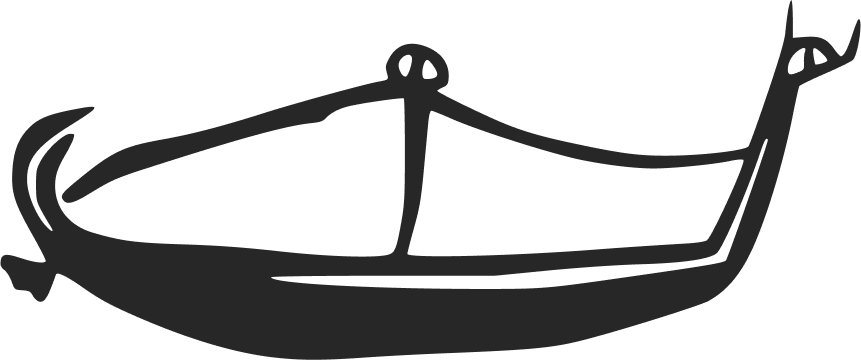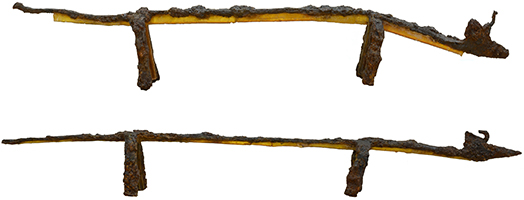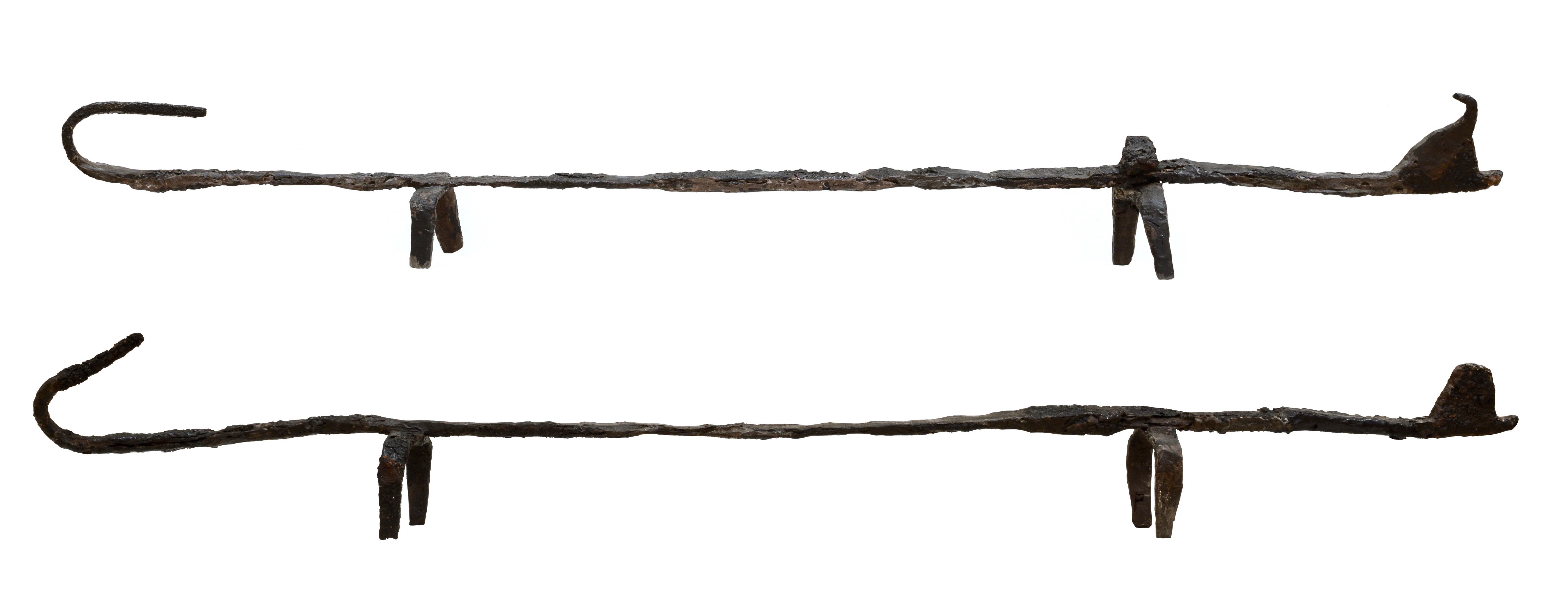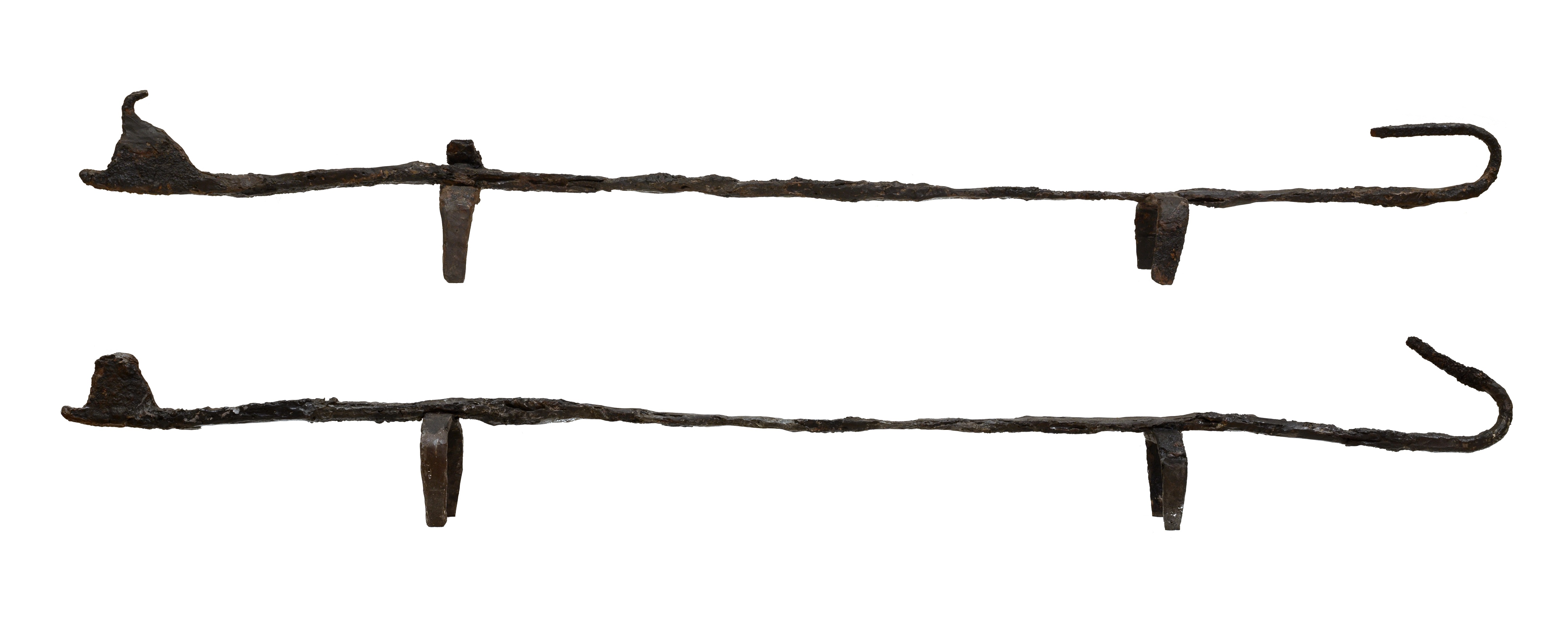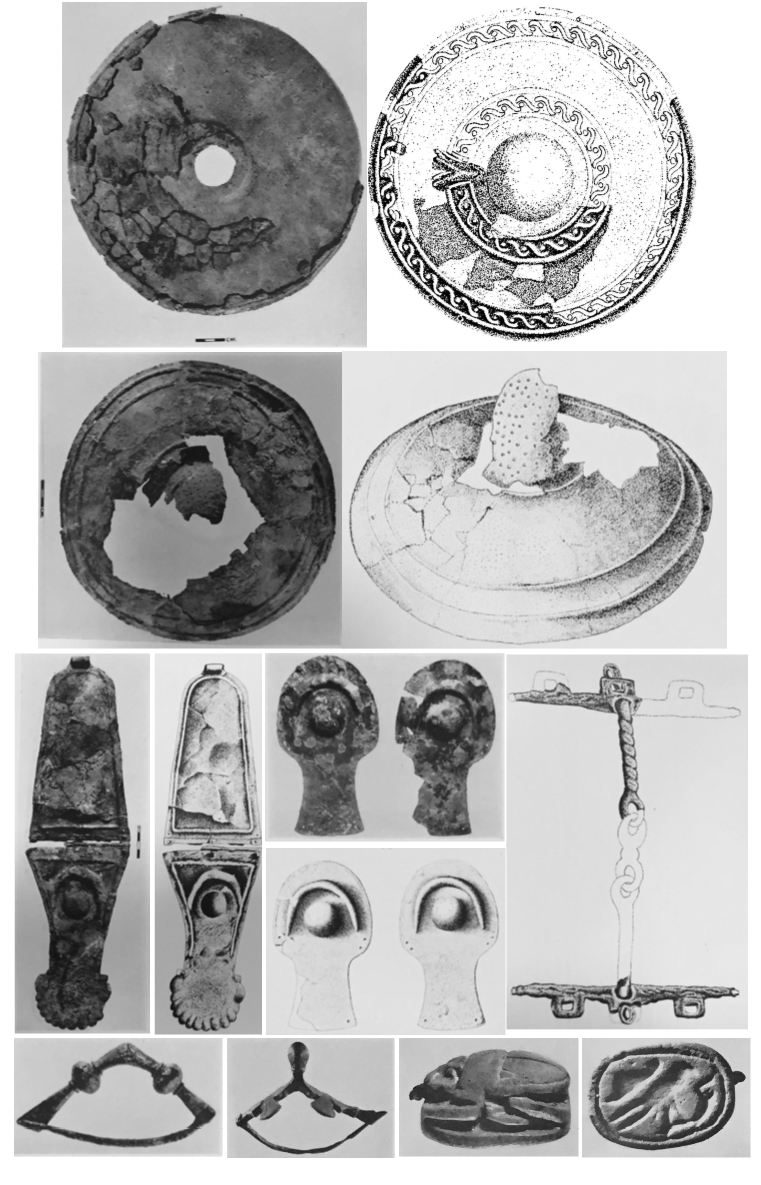The ship's bow is very similar to the Argos examples, with a vertical stempost ending in an S-shaped horn, ram, and a solid rectangular forecastle. The stern is simpler, curving sharply inward parallel to the hull.
Ship-shaped iron fire-dogs
C99
CA I (750-600 B.C.)
Palaepaphos, KA-T1/1962
L: 96 cm; H (bow): 7 cm; H (stern): 5 cm; max. H (stands): 6 cm
A pair of iron fire-dogs, each resting on two stands riveted at right angles to the ship's body. No. 21a is missing the horn terminal of the stem.
Nicosia Museum R.R.K.M. 99 T.16/94, nos. 21A, 21B
Karageorghis 1963: 265-300, fig. 17-18
The tomb was mostly destroyed by a bulldozer, breaking and displacing many of the objects from their original position. It had two periods of use, dating to CA I and CA II. The earliest burial was the richest and the one to which the fire-dogs belong. It was also both disturbed and partially looted in antiquity. A horse wearing bronze blinkers was discovered in the dromos near the entrance of the tomb. There was originally a pair of horses, as confirmed by the excavation of the later CA II burial which disturbed them. During this phase, the face pieces and horse bits were gathered and placed in the later tomb, while the pair of horse blinkers of the second horse were still in situ, close to where the animal's head must have been. Near the preserved horse in the dromos were discovered the partial remains of a sacrificed sheep. The dromos of the CA I tomb was particularly large: 12 m long, 3m wide at its south entrance, and 4.83 m wide at the entrance of the chamber. The stomion (1.8 m high, 1.5 m wide) had a rounded top and was originally closed by a wall made of small river stones. The funerary chamber was near elliptical in shape (4.5 m x 3.5 m), with a maximum height of 2 m. The two imported skyphoi argue for an early date within CA I, one being LG and the other with pendent semicircles.
Karageorghis, V. 1963. “Une tombe de guerrier à Palaepaphos,” BCH 87: 265-300.
